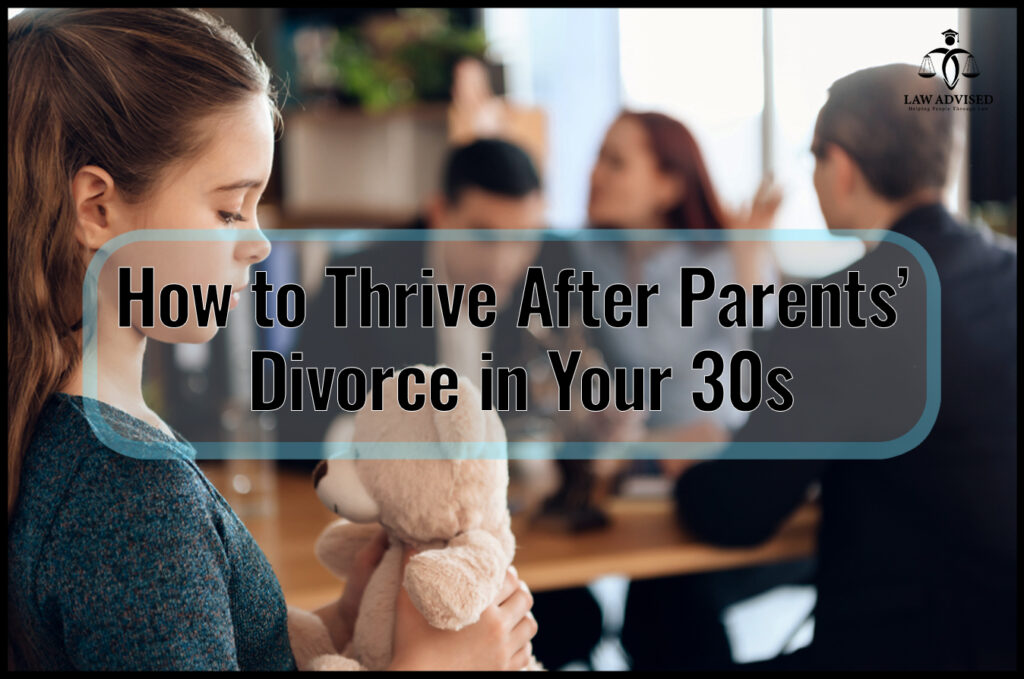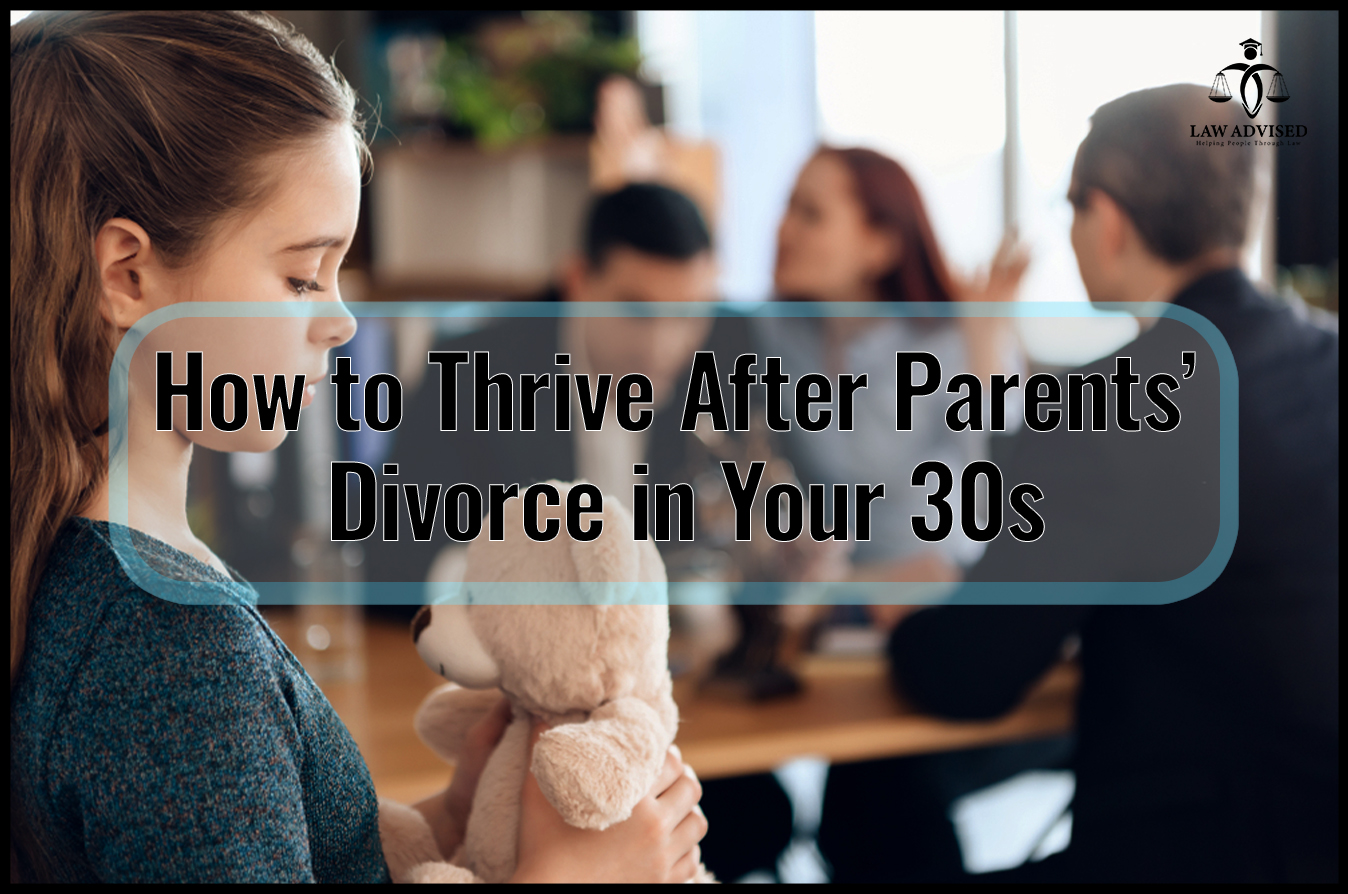Dealing with your parents’ divorce in your 30s involves understanding and communicating your emotions effectively while seeking support from loved ones and professional counseling. Divorce is a challenging and emotionally charged experience, regardless of age.
When parents decide to end their marriage, it can leave lasting impacts on their adult children, even in their 30s. Coping with parents’ divorce at this stage involves a unique set of considerations and challenges. We will explore practical strategies and tips to help you navigate through this difficult time.
By understanding your emotions, seeking support, setting boundaries, and focusing on self-care, you can effectively deal with your parents’ divorce and find healing and growth in the process.
Emotional Challenges And Growth Opportunities
Dealing with your parents’ divorce in your 30s can be emotionally challenging. It is important to acknowledge and navigate the complex emotions that arise during this time. Understand that it is normal to feel a range of emotions, such as sadness, anger, confusion, or even relief.
Developing resilience and self-awareness is crucial in overcoming these challenges. Take time to reflect on your feelings and understand their roots. Seek therapy or counseling if needed, as professionals can provide guidance and support. Surround yourself with a strong support system of friends and loved ones who can listen and offer advice when needed.
Embrace the growth opportunities that come with this experience. Use this time to discover your own strengths and values. Focus on personal growth and self-care. Engage in activities that bring joy and help you heal. Remember that it is okay to prioritize your own well-being and set boundaries with your parents if necessary.
Building Strong Support Systems
Building strong support systems is crucial when dealing with parents’ divorce in your 30s. Seeking therapy and counseling can provide valuable guidance and a safe space to process complex emotions. A therapist can help you navigate the challenges of adjusting to changes within your family dynamics and provide coping strategies.
It’s also essential to cultivate healthy relationships with trusted friends and family members who can offer understanding and support. Engaging in open and honest communication with loved ones can help maintain a sense of connection and provide a platform for expressing your feelings. Remember to prioritize self-care, engage in activities that bring you joy, and practice self-compassion during this challenging time.
Self-care And Personal Growth
In your 30s, dealing with your parents’ divorce can be a challenging time emotionally and mentally. Prioritizing self-care practices is essential for navigating through this situation. One way to take care of yourself is by exploring new hobbies and interests. This can help distract your mind and provide a sense of fulfillment and joy.
Whether it’s picking up a musical instrument, learning a new language, or joining a sports team, engaging in activities that bring you happiness and a sense of accomplishment can be incredibly beneficial. Additionally, self-care practices such as regular exercise, meditation, and spending time outdoors can help reduce stress and promote mental well-being. Remember, taking care of yourself is crucial during this time of transition, and finding activities that bring you joy and personal growth is a positive step forward.
Reevaluating Career Goals And Ambitions
Reevaluating career goals and ambitions is an important step in dealing with your parents’ divorce in your 30s. It provides an opportunity to reflect on your current career path and explore new possibilities. Identifying new career paths can be done by assessing your interests, skills, and values. Take the time to research different industries and job roles that align with your strengths and passions. Pursuing higher education or professional development can also open up new doors and enhance your skill set.
Consider enrolling in relevant courses, attending workshops, or obtaining additional certifications. Networking with professionals in your desired field can provide valuable insights and connections. Speak to career counselors who can guide you in making informed decisions about your career. Embrace this transitional period to reassess your goals and pave the way for a fulfilling and successful future.
Managing Finances And Creating Financial Stability
Managing finances and creating financial stability is an important aspect of dealing with your parents’ divorce in your 30s. One of the first steps is to set financial goals for yourself. Evaluate your current financial situation and think about what you hope to achieve in the short and long term. This could include paying off debt, saving for a house, or planning for retirement.
Creating a budget is essential to help you manage your finances. Start by tracking your income and expenses to get a clear picture of where your money is going. Allocate specific amounts to different categories, such as rent, groceries, utilities, and entertainment. Be sure to prioritize your financial goals and allocate funds accordingly.
Sticking to your budget requires discipline and commitment. Avoid unnecessary expenses and find ways to save money, such as cooking at home instead of eating out and utilizing free or affordable recreational activities. Use online tools or mobile apps to help you track your spending and stay on track.

Repairing Relationships With Parents
Repairing Relationships with Parents
Establishing boundaries and healthy communication is crucial when dealing with parents’ divorce in their 30s. It is essential to define and communicate your needs and limits clearly. Setting boundaries gives you the space and protection required to navigate the complexities of the situation.
Finding a way to engage in healthy communication is vital for both parties involved. Effective communication involves active listening, expressing emotions honestly, and practicing empathy. It is important to convey your thoughts and feelings respectfully, ensuring that both parties feel heard and understood.
Forgiveness and moving forward
Forgiveness can be a challenging process, but it is an essential step towards healing and moving forward. It is crucial to acknowledge and validate your emotions while working towards forgiveness. This process may involve therapy, journaling, or seeking support from friends and family.
Furthermore, it is important to remember that forgiveness does not require forgetting or condoning the past. It is about releasing the emotional burden and allowing yourself to heal. Embracing personal growth and building resilience will help you navigate the challenges that arise from your parents’ divorce.
Forming Healthy Romantic Relationships
Understanding personal relationship patterns:
When dealing with the divorce of your parents in your 30s, it is important to understand your personal relationship patterns. Take the time to reflect on past relationships and identify any recurring themes. This self-awareness can help you avoid making the same mistakes and develop healthier romantic relationships in the future.
Building trust and intimacy:
To form healthy romantic relationships, focus on building trust and intimacy. Be open and honest with your partner, sharing your emotions and vulnerabilities. Communication is key in establishing a strong foundation and understanding each other’s needs. Trust takes time to develop, so be patient and consistent in your actions. Engage in activities that promote intimacy, such as spending quality time together and showing affection.
Avoiding negative relationship patterns:
Recognize and avoid negative relationship patterns that may stem from your parents’ divorce. Understand that not all relationships are the same and that you have the ability to break free from destructive patterns. Seek professional help or counseling if needed to navigate any unresolved emotions or insecurities that may affect your relationships.
Self-care and personal growth:
Focusing on self-care and personal growth is essential when dealing with your parents’ divorce in your 30s. Take care of your physical and emotional well-being by engaging in activities that bring you joy and relieve stress. Prioritize self-reflection and personal development, investing in yourself, and building a strong sense of self-worth.
Exploring New Passions And Purpose
As you navigate your 30s and cope with your parent’s divorce, it can be an opportune time to discover personal values and passions. Take this opportunity to delve into activities that ignite your enthusiasm and bring you joy. Engaging in new hobbies, joining clubs, or enrolling in classes can expose you to different interests and provide a sense of purpose.
Another important aspect is setting and achieving personal goals. Whether it’s small goals like learning a new language or larger goals such as starting a business, having a clear direction in life can help you cope with the emotional challenges. Break your goals into actionable steps and celebrate each milestone along the way. This will give you a sense of accomplishment and motivate you to continue moving forward.
Embracing Change And Creating A New Narrative
Divorce is a challenging experience, especially for adult children. However, it also presents an opportunity for personal growth and resilience. Rather than dwelling on negative feelings, it’s important to focus on embracing change and creating a new narrative. Overcoming limiting beliefs and self-doubt is a crucial step in this process. Recognize that your worth and happiness are not defined by your parents’ relationship status. Instead, prioritize your own emotional well-being and personal goals. By reframing your perspective and envisioning a positive future, you can navigate the complexities of your parents’ divorce and find strength in your own journey.
Frequently Asked Questions For How To Deal With Parents’ Divorce In Your 30s
How Does Divorce Affect Adult Children In Their 30s?
Divorce in the 30s can be challenging as adults navigate their own lives while dealing with parental separation. It can bring emotional turmoil and impact relationships.
What Are The Common Emotions Experienced By Adults During Their Parents’ Divorce?
Adults may experience a mix of emotions, including sadness, anger, confusion, and even guilt, as they try to support both parents while dealing with their own feelings.
Can Parental Divorce In Your 30s Alter Your Perception Of Love And Relationships?
Divorce at this stage can reshape perspectives on love and relationships, challenging beliefs and shaping future choices. It’s an opportunity for growth.
How Can Adults In Their 30s Support Themselves Emotionally During Their Parents’ Divorce?
Adults benefit from seeking emotional support through friends, therapy, or support groups. Self-care, setting boundaries, and expressing emotions are crucial as well.
What Steps Can Adults Take To Maintain A Healthy Relationship With Both Parents After The Divorce?
Open communication, setting boundaries, and working on individual relationships can help maintain healthy connections with both parents after a divorce.
Is It Normal For Adult Children To Feel Torn Between Their Parents During A Divorce?
Feeling torn between parents during a divorce is common for adults. It’s important to recognize these emotions and find healthy ways to navigate them.
Can Going To Therapy Be Beneficial For Adult Children During Their Parents’ Divorce?
Therapy can provide emotional support, guidance, and tools to help adults cope with the challenges and complexities of their parents’ divorce.
How Can Adults Ensure Their Own Future Relationships Are Not Affected By Their Parents’ Divorce?
Taking time for self-reflection, self-growth, and seeking therapy if needed can help adults ensure their own future relationships are not negatively impacted by their parents’ divorce.
Conclusion
Navigating through your parents’ divorce in your 30s can be a challenging and emotional journey. Remember to lean on your support system, take care of your mental and physical well-being, and allow yourself time to heal. It is important to remember that each journey is unique, and there is no right or wrong way to deal with this situation.
Stay strong, practice self-care, and have faith in your ability to adapt and thrive.
Ismail Hossain is the founder of Law Advised. He is an Divorce, Separation, marriage lawyer. Follow him.





Leave a Reply